What a mess.
Despite an era of tremendous success, the city of Boston continues to find drama and things to gripe about. Since the turn of the century, Boston has celebrated 10 championships across all four major sports. Four additional times the city has seen one of its teams come up just short, falling in the finals.
In the past year, all four Boston teams qualified for the playoffs, two reached their conference finals and one staged the biggest comeback in Super Bowl history. And yet here we are, still clinging to our identity of yesteryear as the city that just can’t get it right.
The David Price/Dennis Eckersley saga has dragged into its second month of relevance, adding to a seemingly unending string of flare-ups and icy relations with the media. Concurrently, former Boston Bruins forward Jimmy Hayes had his recent encounter with shock jock Mike Felger become a regional headline.
The Nantucket confrontation piggybacked on the Price storyline, but also served as a stark contrast to the manner in which the maligned Red Sox pitcher handled his own frustrations with the local media.
Claude Julien saw his tenure as the Bruins’ bench boss come to an end on February 7. The press conference announcing the firing “coincidentally” began 30 minutes after the beginning of the Patriots’ Super Bowl parade; an unceremonious, distasteful and insulting end for the winningest coach in team history.
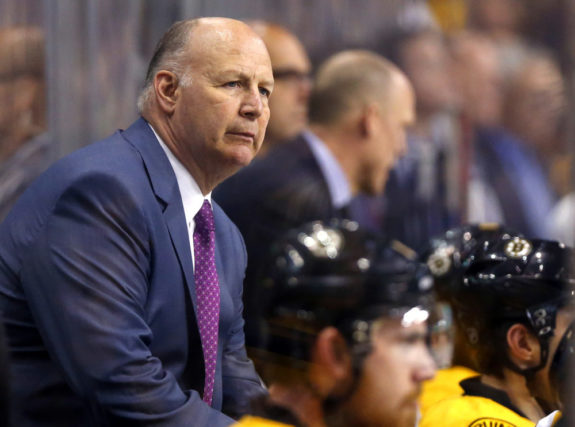
Prior to the firing, lines were drawn amongst fans and media alike as to whether or not the winningest coach in team history was truly to blame. Though the results clearly showed that the right call was made, the road to get there was bloody.
Despite the fact that over the past 10 years his numbers top the charts nearly across the board, Tuukka Rask is still the city’s Rodney Dangerfield, woefully short on respect.
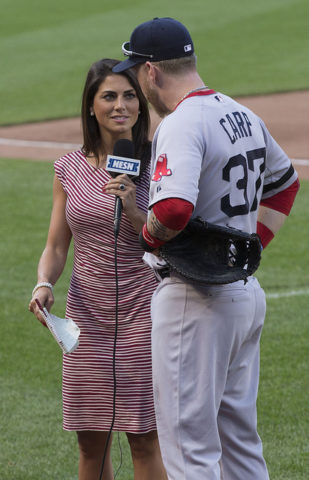
The local media have, at times, been overzealous and unfair in their coverage. No one should fault them for breaking stories, but the manner in which they’ve fanned the flames ad nauseum is not only unprofessional, it ensures that the narrative supersedes the initial incident, thereby becoming the story.
That is, by definition, bad journalism.
Even Boston fans themselves have taken their turn at ground zero, with the Adam Jones story serving as a major polarizing moment. Many (including some in the media) were quick to denounce that the incident even took place. Others chose to deflect, saying the acts of one individual do not define an entire city or fan base. Though that is 100% true:
- The incident did take place.
- This is not the first time something of this sort has taken place at a Boston sporting event.
For many of the city’s athletes, fans and members of the media, 2017 has been a contentious, tumultuous and ugly year.
From Villain to…Villain
Boston is not an easy city to play in. The fans are rabid, the media is relentless…it’s not for the thin-skinned. Halfway through his second tour of duty in the city, David Price has learned that lesson.
I don’t view him as a cancer, nor do I think his tour of duty has been quite as bad as some would suggest. But I do think his marriage with the city is destined to fail.
For starters, it’s important to note Boston’s history with Price as an adversary. He came out of the bullpen in the 2008 ALCS, pitching three scoreless innings to earn the win and knock the Red Sox out of the playoffs just one game shy of the World Series. He’d go on to spend six more years as the ace for a pesky division foe, which culminated with this:
https://www.youtube.com/watch?v=5XjldrPjJfI
No one throws at Papi at Fenway without making a few enemies. Ortiz himself was briefly one of those enemies, using the postgame presser to call him a word that starts with the letter “B” and rhymes with “witch.”
None of this is to say that Price was doomed to be a villain in Boston. For years, Ken “The Rat” Linseman was public enemy number one as a member of the Philadelphia Flyers. A 1984 trade brought Linseman to Boston, where he spent five-plus seasons as a fan-favorite. Previously playing the role of villain, however, does represent an obstacle which the player must overcome with his actions. To this point Price has yet to do that.
The “Price” You Pay
The left-hander is in the second year of a seven-year, $217 million contract. That’s $31 million per season, for the arithmetically-challenged. It’s the most lucrative contract ever awarded to a pitcher. That in and of itself carries lofty, possibly impossible expectations.
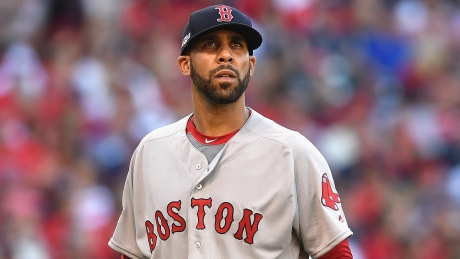
Anything shy of what Chris Sale has done this year, every year, for seven seasons would elicit grumbles amongst fans and media alike. David Price asked for and signed that contract. If he’s upset with the results he has no one to blame but himself.
In the NHL, two veteran players can post seasons that are statistically indentical and have them viewed completely differently. David Backes and Kris Versteeg registered 38 and 37 points, respectively. Versteeg’s production at $950,000 made him a steal of sorts, while Backes’ $6 million price tag saw him get his name dragged through the mud virtually all season long.
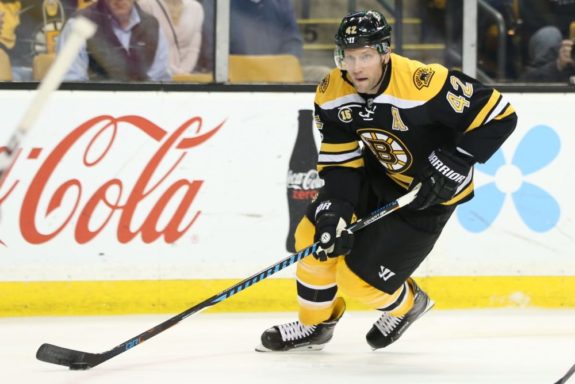
It’s due in part to our current era of hyperbole. Primarily though, the schism is easily attributed to an instance of cost and expectations outweighing production.
Chris Sale is in the midst on an historic season, and is making just $12 million. Essentially, Sale is playing up to Price’s contract, while Price is playing up to Sale’s. Were Price’s outbursts not so frequent and public it’s likely Sox fans would save at least some of their vitriol.
Regardless, his paycheck is not lost on the people of New England. Those who struggle day in and day out to make ends meet for their family. The same people who basically need to open a savings account to scrape together enough money to take their family to Fenway to watch Price give up four runs in six innings before lashing out at reporters after the game.
Price vs Eck/ Hayes vs Felger
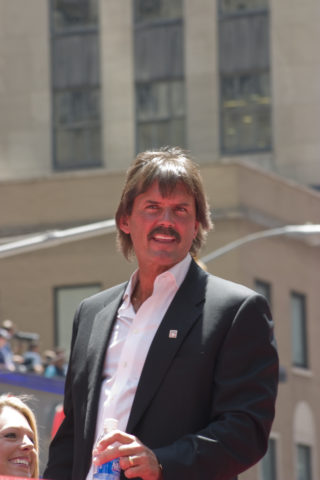
Regardless of where you stand on the Price vs Eckersley spat, there are undeniable truths:
- David Price does not take criticism well, even when his play warrants it
- He DID get in the face of a 62-year old man to berate him
- The 62-year old man also happens to be a Hall of Fame player at the same position played by Price, not to mention a fan favorite during his time in Boston
Dennis Eckersley was hardly out of line for his comment. And Price’s supporters will chalk up the incident as him sticking up for a teammate…perhaps it was. I don’t know David Price.
What I do know is that he has established a lengthy precedent in Boston as being openly distrustful of and “at war” with the local media. And again, that’s entirely his prerogative. But a profanity-laced tirade at a Hall of Fame pitcher for saying “yuck” is not only a MASSIVE overreaction, it smacks of opportunism.
Jimmy Hayes, another maligned Boston athlete, also recently made headlines for an encounter with a member of the local media.
Mike Felger is a man to whom “yuck” is practically a compliment. Perched toward the top of Boston’s media, he has made a name for himself with exceptionally candid commentary, ranging from borderline to downright insulting.
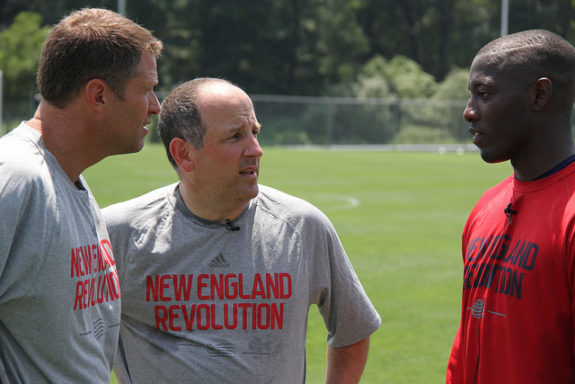
The two bumped into one another in Nantucket. Hayes bought Felger a beer, then let him know that he wasn’t happy with some of the disparaging comments that had been made over the past two seasons.
Aside from both being Boston athletes, Hayes and Price have virtually nothing in common, from their respective talent, accolades, expectations and their responses to criticism. However…
The Difference
All Boston athletes will have their names dragged through the mud should they falter, slump or fall short of expectations. God knows Jimmy Hayes did not live up to his billing, price tag or even the talent Boston shipped to Florida to acquire him. However, a player goes from “maligned” to “pariah” should they continue to rail against any and all criticism in the process of underachieving.
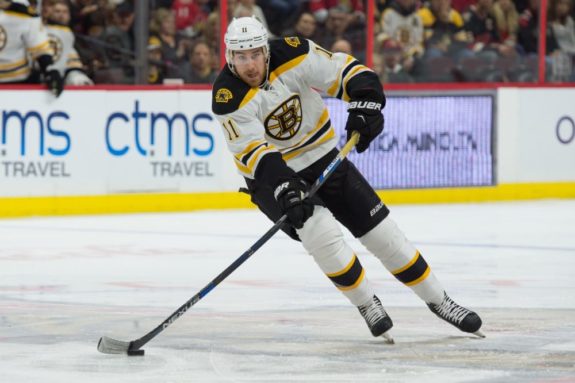
The soft-spoken Hayes may have wanted to publicly fire back, but he did not do so. He very likely realized that regardless of whether or not the criticism was overly harsh he did not have a leg to stand on; his play warranted criticism, and pushing back would only make things worse.
Price’s example of grandstanding, needing to show his teammates what a good soldier and leader he is by attempting to humiliate an outnumbered broadcaster flies in complete contrast to the measured, private confrontation 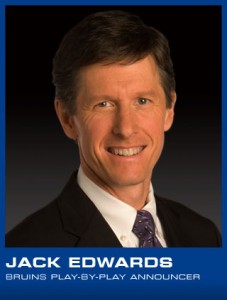 spearheaded by Hayes. The difference between the two methods is the difference between a headline that lasts for several days and one that defines a legacy.
spearheaded by Hayes. The difference between the two methods is the difference between a headline that lasts for several days and one that defines a legacy.
Had Hayes at six-foot-six ever incited an altercation with Jack Edwards on the team plane the reaction from fans and media alike would have been exactly the same: Disgust.
It’s not about whether or not Price is justified in feeling like the city is out to get him, nor is it about his compulsion to address Eckersley’s comments face to face. It’s about the manner in which he went about it, which was classless, unprofessional, and antithetical to the true definition of being a leader: Leading by example.
The Role of the Media
For as poorly as David Price has handled his one-and-a-half seasons in Boston, the media’s handling of his situation (and others) has been equally lamentable.
The members of the Boston media have a job to do. They must ask tough questions, provide analysis and attract and keep readers. From an integrity standpoint, the former are of greater importance. In the 21st century, with newspapers folding daily and blogger-hacks (like yours truly) duking it out for clicks the latter can unfortunately reign supreme.
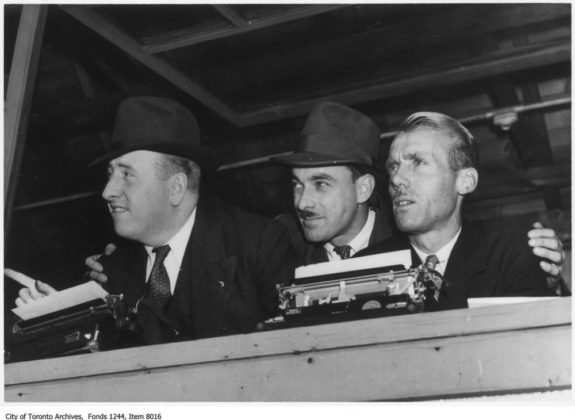
The stories themselves are all rooted in truth: He did this, he said that, etc. Reality is impossible for a journalist to bend. Perception, on the other hand, is perfectly malleable.
The stories take on lives of their own in this era of hot-takes, 24/7 coverage and social media. The event occurs, and it is reported as such. It’s followed by commentary. That is followed by commentary on the commentary. The player or team in question responds negatively to the endless commentary. Then, the new narrative becomes the player or team’s reaction to the unending barrage of criticism.
The harder they poke and push the more likely they are to elicit responses which will provide them with a never-ending stream of narratives and headlines.
David Price is hardly the first Boston athlete to fall into the trap. Jon Lester, Josh Beckett, Manny Ramirez…one can trace this trend all the way back to Ted Williams.
Tyler Seguin had to answer constant questions regarding his maturity and lifestyle. Joe Thornton had his reputation and legacy re-shaped by one bad playoff series versus Montreal. Both were traded shortly thereafter.

It’s cowardly for those in the Boston media who fan the flames to then play victim when they’re engulfed.
The Solution
For the players, the solution is simple: Win.
The only way for the players to change and take back the narrative is to do so with their play in terms of wins and, ultimately, a championship.
Think of Bill Belichick, the man who has never been anything but icy and aloof with the media. How does he get away with it? Because all the man does is win.
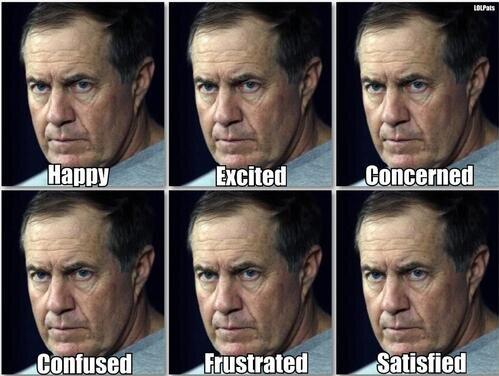
Think of the curse-reversing 2004 Sox. In the hours following Game Two of the ALCS versus the Yankees, Dan Shaugnessy of the Boston Globe penned his now infamous “Pack of Frauds” article.
Granted, the team had been thoroughly outplayed through two games. However, they had yet to play a single game at Fenway Park, and here was one of the city’s most prominent sportswriters suggesting the lovable “bunch of idiots” who had captured the imaginations and hopes of the entire region were merely imposters. Charlatans. Frauds.
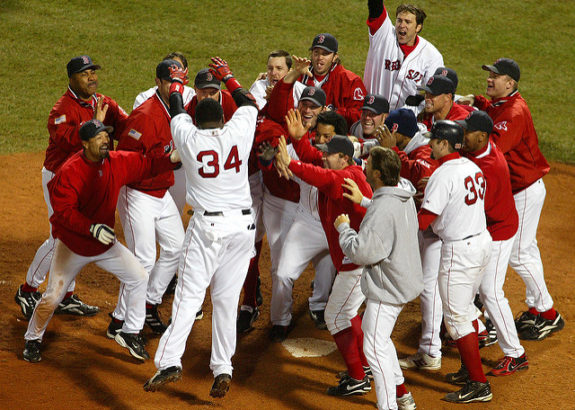
We all know how this turned out. Eight wins and two weeks later the “Frauds” were being hailed as the greatest Red Sox team of all time. Shaugnessy himself even wrote a book about it.
It shouldn’t be this way. A team shouldn’t have to win the title in order to dispel an out of control narrative. Is David Price thin-skinned, overpaid and outspoken? Yes. But the witch hunt that has transpired in the wake of the Eckersley spat, attempting to unearth and illuminate who clapped and who didn’t is pathetic.
That’s not news. That has nothing to do with baseball. That’s clickbait, plain and simple. And Boston fans should know the difference.
Meet the Fans
Every fan base has their die hards. I’m talking about folks who have their nights, weekends, and in the case of title games years ruined by a single loss. In Boston, those people comprise a larger portion of the total fan population than most locales.

Above all else, I know three things about New England:
- Autumn is beautiful
- The people love their teams
- Everyone has a big mouth and an opinion on everything
Our teams are extensions of ourselves. They’re our representatives to the country and world at large. For many of us, they become like family. And like family we hold them to a higher standard and speak our minds when we feel slighted or misrepresented.
For many in the region, Al Davis’ mantra of “Just win, baby,” isn’t enough. Winning may be a cure-all for controlling a narrative, but it won’t make all of Boston fall in love with an unlovable team. There will be a parade and people will show up, but the team will not be etched into the city’s Mount Rushmore of sports.
By and large, Bostonians and New Englanders have a hard time truly embracing success when the perception is that the team in question doesn’t TRULY represent the region. We like our teams to possess more than just talent; fortitude, toughness and character, the hallmarks of blue-collar living are of equal, if not greater importance.
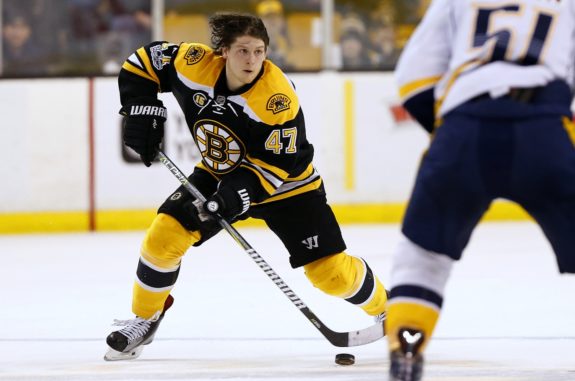
Sure, Belichick’s tortured and deadpan pressers get a pass because of all the winning, but it’s also “The Patriot Way” which endears him to the fans and media alike.
HOW a Boston team wins is every bit as important as how MUCH they win.
The Lunch-Pail Gang
Perhaps no iteration of a Boston team personifies the aforementioned statement better than the Bruins of the late- 1970’s.
The Orr and Esposito teams of the early-70’s were so talented that their two titles are more likely to elicit thoughts of “That’s it?!” than to inspire awe. Their departures gave way to a new chapter of Bruins hockey, one that prominently featured an ensemble cast of grinders and tough guys of the meat-and-potatoes variety. Blue collar. Lunch-pail.
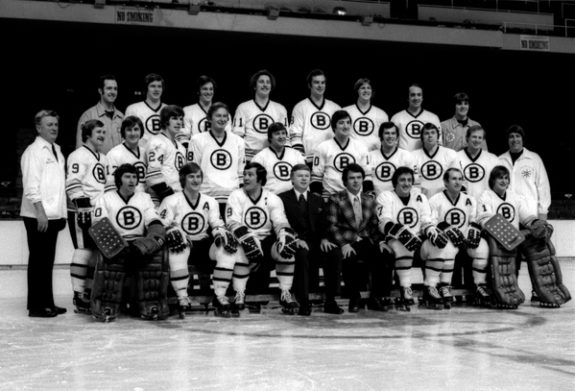
That’s not to say Orr’s Bruins weren’t tough, nor is it a suggestion that the “Lunch Pail Gang” were devoid of talent. However, it was a far-cry from the record-breaking teams from earlier in the decade. The team identity was based around making you pay for every inch of ice. And the fans loved every second of it.
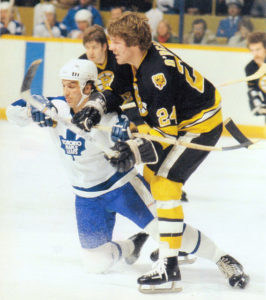
Terry O’Reilly, John Wensink and Stan Jonathan became cult heroes, players whose demeanor and style of play perfectly embodied the city’s identity as a rough-and-tumble town where, on a Friday night, one was just as likely toget into a scrap as they were to go home with a young lady.
This era of the Bruins produced zero Stanley Cup wins, though they did make it to four-consecutive semifinals and back-to-back finals. However, the way that they played will forever endear them to the city.
Am I suggesting the city would be happier with lovable losers? Absolutely not. The Red Sox tried that for 86 years and brought misery to multiple generations. However, for a team to become truly beloved in Boston, it takes more than wins. This year’s Red Sox team is showing that in spades, as they sit at odds with the fans despite their place atop the American League East, as of this writing.
Identity Crisis
The Puritanical ideologies of suffering and crosses-to-bear are firmly embedded within New England culture, and were given a 20th century-spin with 86 years of Red Sox futility. However, a spate of championships in the 21st century have joined with social media to create a bizarre, discouraging phenomenon. A large contingency of Boston fans are now entitled to championships and excellence while simultaneously leaving no stone unturned in their pursuit of something to complain about.
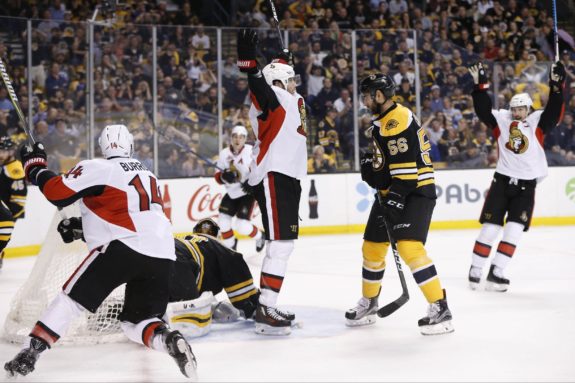
There have ALWAYS been things to complain about in Boston, and their always will be. When a fan base is so passionate it stands to reason that opinions will be plentiful. But the lengths that some go to in making mountains out of molehills is astonishing. Complaining about EVERYTHING is not only juvenile, it serves to dilute and drown-out the legitimate gripes.
Bruins Bleat
Take Tuukka Rask for example. Over the last ten seasons, no goaltender with at least 150 starts has a better goals-against-average than Rask’s 2.24. Over than same period of time, the only qualifying goalie with a better save percentage than Rask’s .923 is Tim Thomas….at .924.
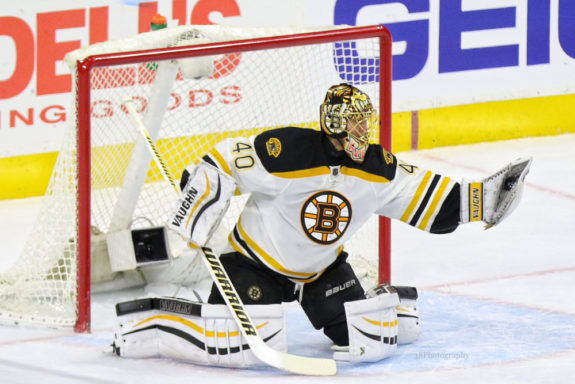
And yet every single time Rask doesn’t completely stand on his head for 60 minutes behind a questionable defense we’re treated to a chorus about how he is overrated, overpaid, a headcase…whatever. It’s not only factually incorrect and unfair to one of the game’s best netminders, it’s a bad look for Boston fans. This is an Original Six franchise, and thanks to social media a large contingency of the team’s fans are sounding like they just watched their first game.
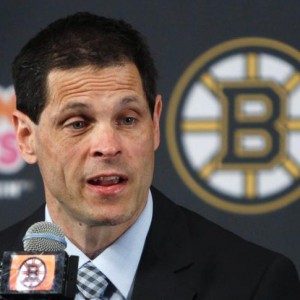
The vitriol and assuredness with which Bruins fans have attacked Don Sweeney and Claude Julien serve as another fine example. The Backes and Beleskey signings, as of now, don’t look great. And yes, the manner in which Julien was dismissed left a bad taste in the mouths of many, including yours truly.
But Sweeney is a Harvard educated executive with 1,100 games experience in the NHL. He inherited a salary cap nightmare and has been on the job for two seasons; I don’t think it’s necessarily appropriate to send him to the gallows just yet.
Julien’s message appeared to have grown stale within the room, and the team was absolutely rejuvenated following the coaching change. But he’s the winningest coach in franchise history. He coached the Bruins to their first championship in nearly 40 years. He won a Jack Adams award for coach of the year. Claude held his post for as long as the team’s previous six coaches combined. It’s not about refraining from complaining altogether, but rather not doing so flippantly, or with such animosity.
The large (and growing) contingency of Boston fans who relish just-cause and opportunity to bash their teams are changing the landscape of the fan base, and not for the better.
Tempestuous Triumvirate
As things stand, the teams, media and fans form an ugly, three-headed monster.
In Boston, there is a right way and a wrong way of doing things, even winning. It’s a city that loved their “Lunch-Pail Gang” and currently extols the virtues of “The Patriot Way.” A team that leads its division more than halfway through the season is having their character called into question on a nightly basis. Why? Because with few exceptions they’ve been deemed unlikable, and fans have shoveled down that narrative with their shiny new silver spoons.

David Price has never been a terribly likable player, but the unabashed hatred with which fans and media alike attack him, in my opinion, says as much about them as it does about Price himself.
And that’s really the crux of this article. Should David Price, Claude Julien, Don Sweeney, any sports figures really, be immune from criticism? Absolutely not. That comes with the territory, no matter where you play.
The players and coaches have a job to do. When they fall short of expectations the media and fans alike are going to notice. But the ZEAL with which narratives are manufactured and consumed in Boston these days is disturbing. The eagerness of the fans to choose a side with nothing but hearsay and predisposition guiding them delegitimizes the entire fan base.
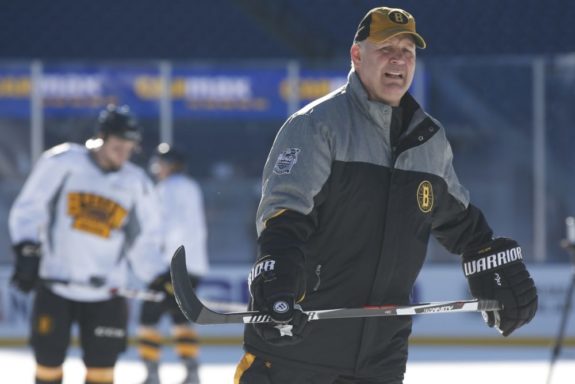
The Boston media has a job to do. They have shown over the years (and especially this year) that they have zero problem fanning the flames, dividing their readers and worsening whatever “problem” they initially reported on.
So fans: Cheer for your team. Don’t root for them to fail so you can be “proven right.” Keep a cool head. Respect one another’s opinions. And take what the media offers you with a grain of salt.
Even when it’s coming from me.